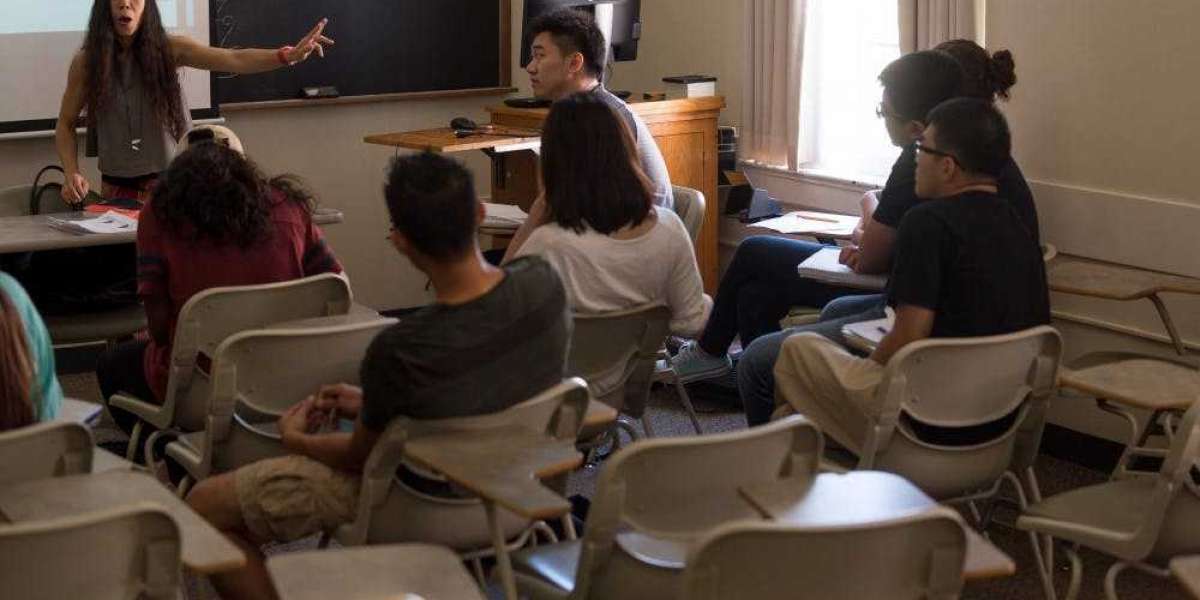Ohio University offers classes for 12 different languages, but that does not reflect how many languages are actually spoken on the campus on any given day.
Most international students at OU know multiple languages, Dawn Bikowski, a professor in the department of linguistics, said. That fact might be impressive to many American students, but multilingualism is more common in other countries than in the United States.
Although it is difficult to determine the exact number of languages spoken at OU, the number could be in the hundreds. In fall 2015, exactly 1,740 international students from a total of 113 countries were enrolled at OU.
The Classics and World Religions department offers classes such as Greek and Latin, and the Modern Languages Department teaches classes such as Spanish and Russian. OU also has courses in Arabic, Indonesian and Swahili, according to its website.
Bikowski, who teaches many international students, said international students speak multiple languages and go to “fascinating” places around the world. However, because they do not speak English the way many Americans are used to, Americans often treat them as second-rate students and as an isolated population.
The ultimate goal of many educators when teaching a language, Bikowski said, is not necessarily for students to become bilingual, but to push them outside of their comfort zone.
“When you learn another language, you learn to think and communicate in different ways,” Bikowski said. “You appreciate how difficult it is for others in that process.”
Yasemin Inceoglu, a graduate student from Samsun, Turkey who is studying statistics, knows both Turkish and English. She has been in the U.S. for a few months and she is only taking English classes before starting her masters degree.
“The hardest thing for me is speaking,” Inceoglu said. “When you’re speaking with someone, you have to face-to-face, you can’t make some mistake. It feels nervous. I think I am improving day-by-day.”
Although it is common for people in other countries to learn multiple languages, Bikowski said, it is not as necessary for Americans.
Only 25 percent of American adults speak a language other than English, according to Pew Research Center.
Bikowski said the goal of making the majority of Americans bilingual is unrealistic because the process of learning a language is time-consuming and ineffective if Americans do not live in a place where they can use the language.
Instead, Bikowski said, she would like to see Americans become more inter-culturally competent. She said it would be interesting to teach people snippets of a variety of languages so they can learn about a country’s value systems and cultural thought patterns.
Duran Gulec, a graduate student studying agricultural engineering from Kahramanmaraş, Turkey, said he can speak three languages: Turkish, English and Arabic.
“Every company is looking for some (bilingual) people,” Gulec, who started learning English three years ago, said. “If you are talented with your second language, you can easily grab a job.”
Inceoglu is part of an OU conversational program, called Global Conversation Partners, that matches international students with domestic students to help them learn English, she said. The program has helped her learn about American culture, and she and her conversational partner recently carved pumpkins, Inceoglu said.
Bikowski said she thinks Americans place a high premium on being multilingual because few people in the U.S. know multiple languages or have traveled outside the country.
“I think in a lot of countries, that’s just the way it is,” Bikowski said. “You just learn languages because you have to. I think that’s the big difference. In America, if we really had to learn more languages, we would. But we really don’t have to.”
Milayna Powell, a freshman studying creative writing from Byesville, said the international students who she has talked to at OU speak English well, even if their English is a little broken.
“I’m jealous that I don’t know that many languages,” Powell said. “I wish they would teach us at a younger age instead of in high school.”
Source: https://www.thepostathens.com/article/2016/10/ohio-university-multilingual-international-students







